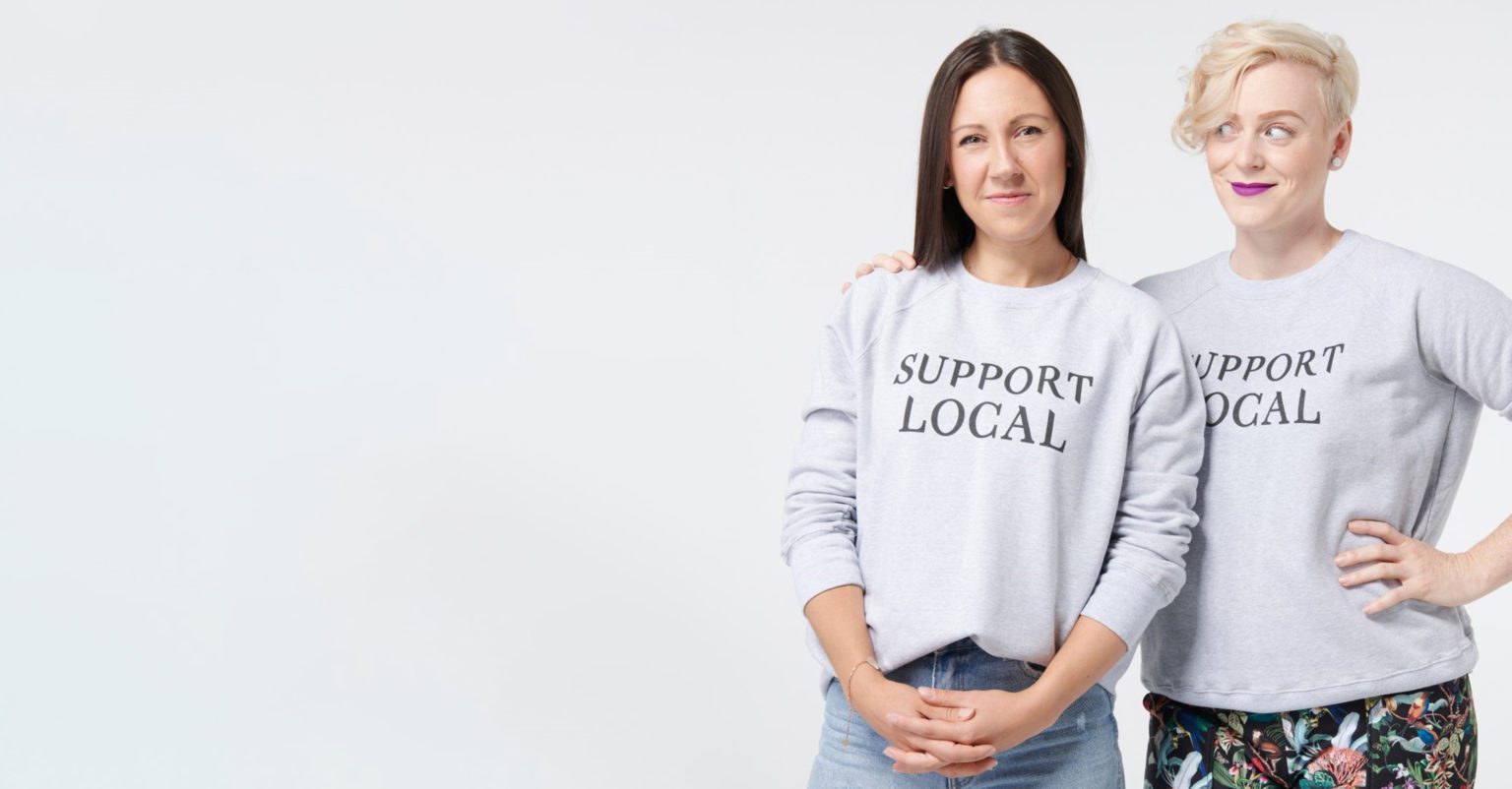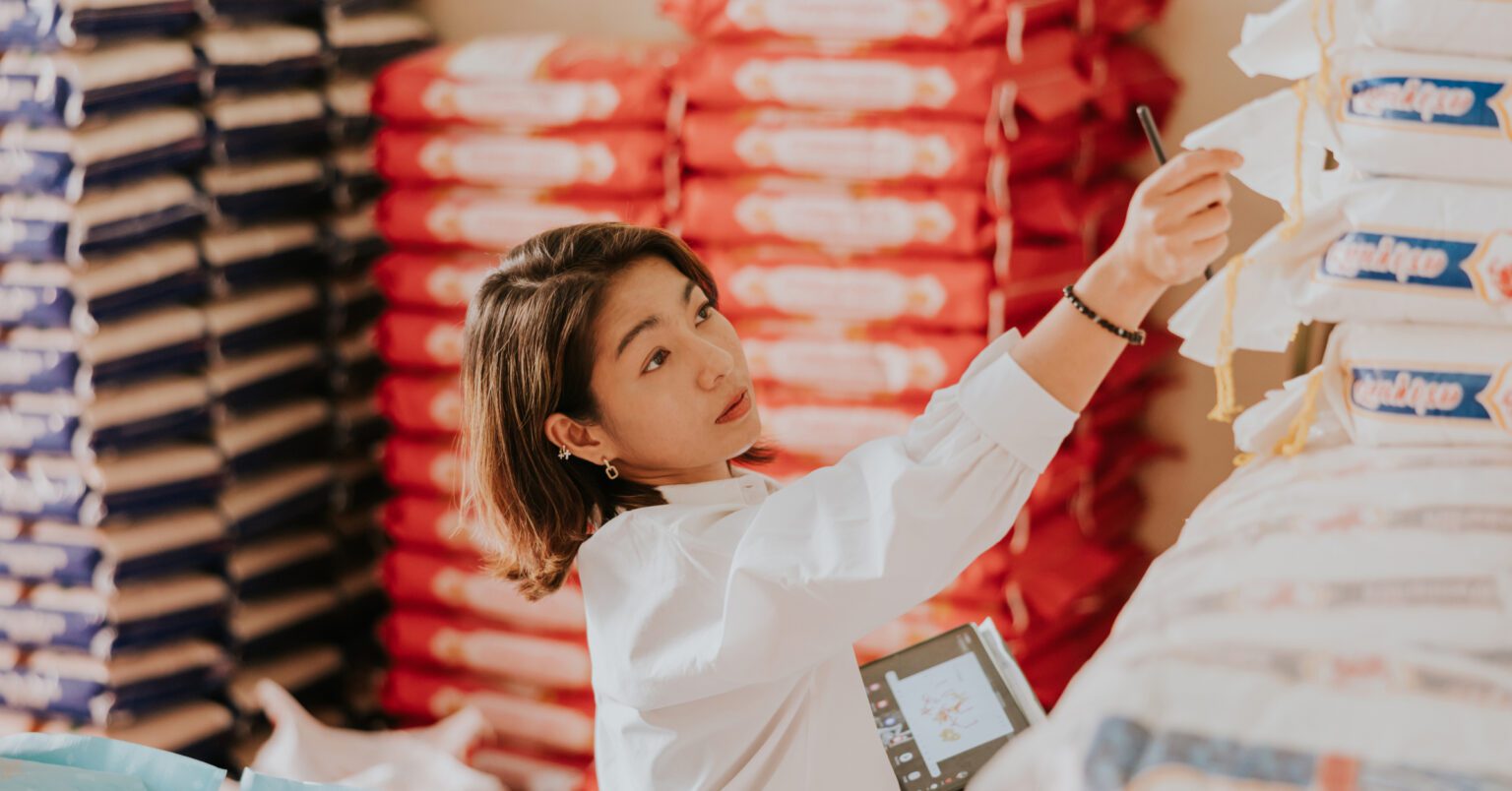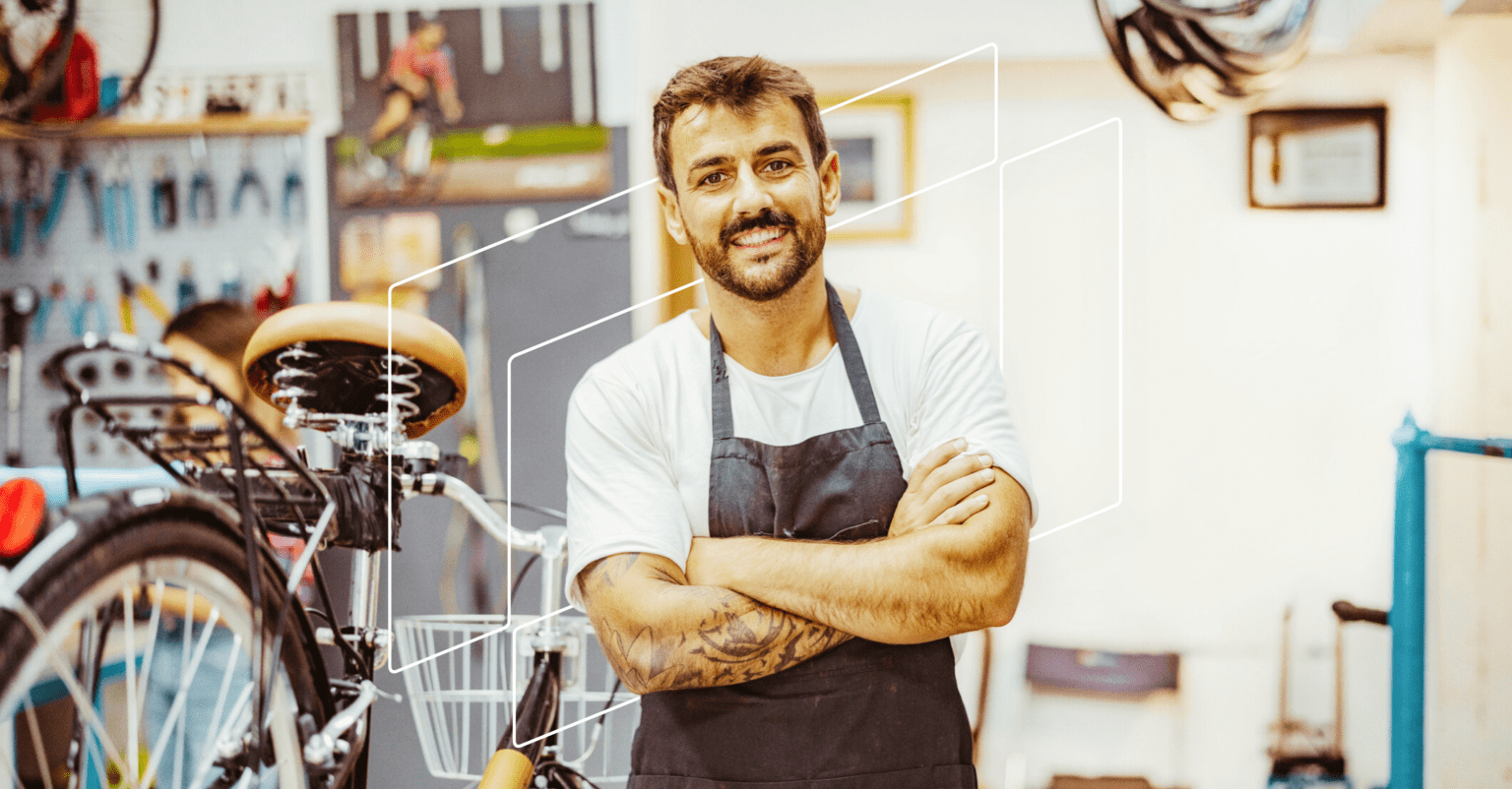When bag designer, Kate Dillon, turned her sights to sweatshirts in an effort to save her business, she wanted to involve as many other local businesses as possible.
The sweatshirt that had a moment – then started a movement
When the pandemic hit, She Lion Founder Kate Dillion was preparing for a bumper year. At home in regional Victoria with her newborn and a three-year-old, she had ordered more stock than usual in anticipation of growth for her business, which sells premium work bags for women.
Then, overnight, her product was no longer needed.
“Women weren’t travelling between home and office anymore. And you don’t need a gorgeous bag to get you from the living room to the dining room,” she says, explaining that sales dropped by 40 per cent just as freight costs on the sales she was making increased by 30 per cent. “Everything got harder and more expensive. Communications took five emails instead of one.”
With her own business in peril, Kate was also seeing the impact the pandemic was having on small businesses across the country.
“I wanted to do something,” she says. “All these people were losing their livelihoods and I wanted to find a way to start a chain reaction that would help me save my own business and help others to survive the impact of lockdown.”
She envisioned making a product end-to-end in Australia, involving plenty of local businesses.
After one particularly tough day, Kate posted a picture of herself wearing a favourite sweatshirt with the slogan ‘superhero’ emblazoned across it.
“I’ve always been a big fan of the slogan sweatshirt and this one was a reminder to me to pony up and keep going!” she says.
View this post on Instagram
She received an unexpected response – suggestions to create her own line of sweatshirts featuring She Lion’s motto, ‘Walk fearlessly’.
“That really started something for me and I ended up choosing ‘Support local’ and ‘Actually, I can’ as slogans that resonated with the aim of the project. I thought a sweatshirt would be pretty straightforward to make and knew we had the expertise in Australia to produce them.”
But, as Kate acknowledges, she is a bag designer, not an apparel designer. So what unfolded astonished even her.
A little ripple gains momentum
“I put in a call to CGT Australia who I knew to be experienced and ethical clothing manufacturers. They were really supportive of the idea,” says Kate. “As long as your product is cut, sewn and constructed in Australia it can be classified as Australian Made. But I wanted to take it further and keep every single part of the process in Australia so we could involve as many small businesses as possible.”
The 100 per cent cotton sweatshirts were designed, woven, industrially washed and dyed, dark room sampled (due to lockdown) and pre-production sampled in Australia – as well as cut, sewn and constructed. The cotton rib, fleece and labels were woven and the embroidery and screen printing done here. The recyclable poly bags, packaging and thank you cards were all made in Australia. The PR consultant, visual and graphic artists, and growth market specialist are all based in Australia.
“Twenty-two businesses and 300+ employees, not including various other peripheral businesses like the accountants who helped me with strategic planning around managing cost!” says Kate. And all with a negligible carbon footprint thanks to the slow fashion focus, use of a renewable fibre, and responsible and sustainable operations of the businesses involved.
“It opened my eyes to how little I knew about the processes and expertise needed to create a quality garment here in Australia. We have amazing businesses and makers here who operate ethically and sustainably. I’ve since become so passionate about advocating for and supporting this industry that exists right here in our backyard,” Kate says.
“If my little business could do something that had an impact on a value chain of 300 employees, think what’s possible if other businesses support these skills. Even better would be to see the government incentivise support by rewarding businesses that manufacture here, invest in rebuilding the infrastructure we once had, and provide funding for succession planning, apprenticeships and skills training.”
Kate points to a recent EY report commissioned by the Australian Fashion Council showing that the fashion and textile industry contributes $27 billion to the economy and generates $7.2 billion in exports each year. It employs more than 489,000 people, the vast majority women.
“There’s so much opportunity here to harness. The time to innovate is now,” Kate says.
“I’m just a little ripple. But a little ripple can create a big wave. Imagine what lots of little ripples could achieve!”
Sharing the message
The sweatshirts have been a hit with the first two runs selling out and pre-orders rolling in for the next run. Kate’s plan is to embed the apparel stream into her business and spread the message about the benefits of ‘slow fashion’.
“None of this is news to anyone in the fashion industry,” she says, “But the average person has no idea what’s involved in making a garment locally, ethically and responsibly – I didn’t know! We have become so used to fast fashion. But instead of asking why something is so expensive, we should be asking why something is so cheap.”
Kate is encouraged to see more awareness of how supply chains work.
“Because everything is more difficult and more expensive due to the pandemic, people are reflecting more on what’s possible right here in Australia.”
COVID has also amplified momentum for the ‘buy local’ movement. Combined with greater recognition of the social and environmental impacts of fast fashion, there is a growing understanding of why a sweatshirt might cost $179.
But Kate wants that understanding to be more widespread and has produced a video about the creation of her sweatshirts in the hope that people will share the message and become more educated about what an ethical and sustainable supply chain looks like and how they can benefit Australian workers.
“We need to show the people involved, the human side of manufacturing,” she says. “Their grit and skill and resilience are remarkable.”
Stronger together
Kate acknowledges that a big motivation for the project was to save her own business. But what made her so determined to help others at the same time?
“The success of She Lion is largely thanks to support I’ve had from people who don’t even know me. They’ve gone above and beyond when I’ve been vulnerable enough to ask for help,” says Kate. “So I know that to make an impact and create a movement, you need a community. You can’t do it on your own. We’re stronger together and I’d rather give it a red hot shot than roll over.
“The more people that got involved with this project, the more it validated the concept and brought awareness to the industry. It has generated such good energy – and we all need that, especially now.”
Need flexible access to funds to explore new product lines? See how a Prospa Small Business Loan could help. Apply now.










